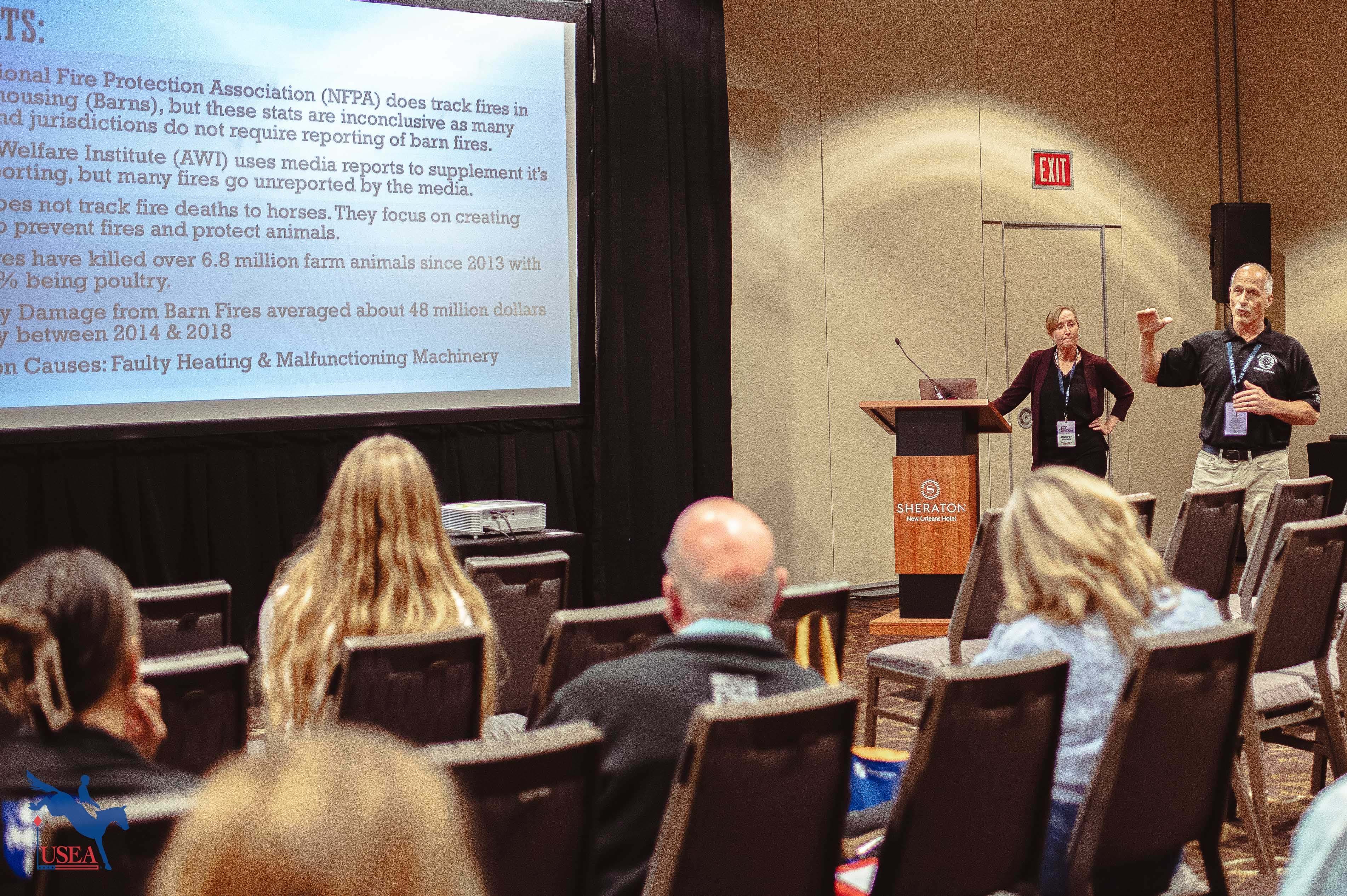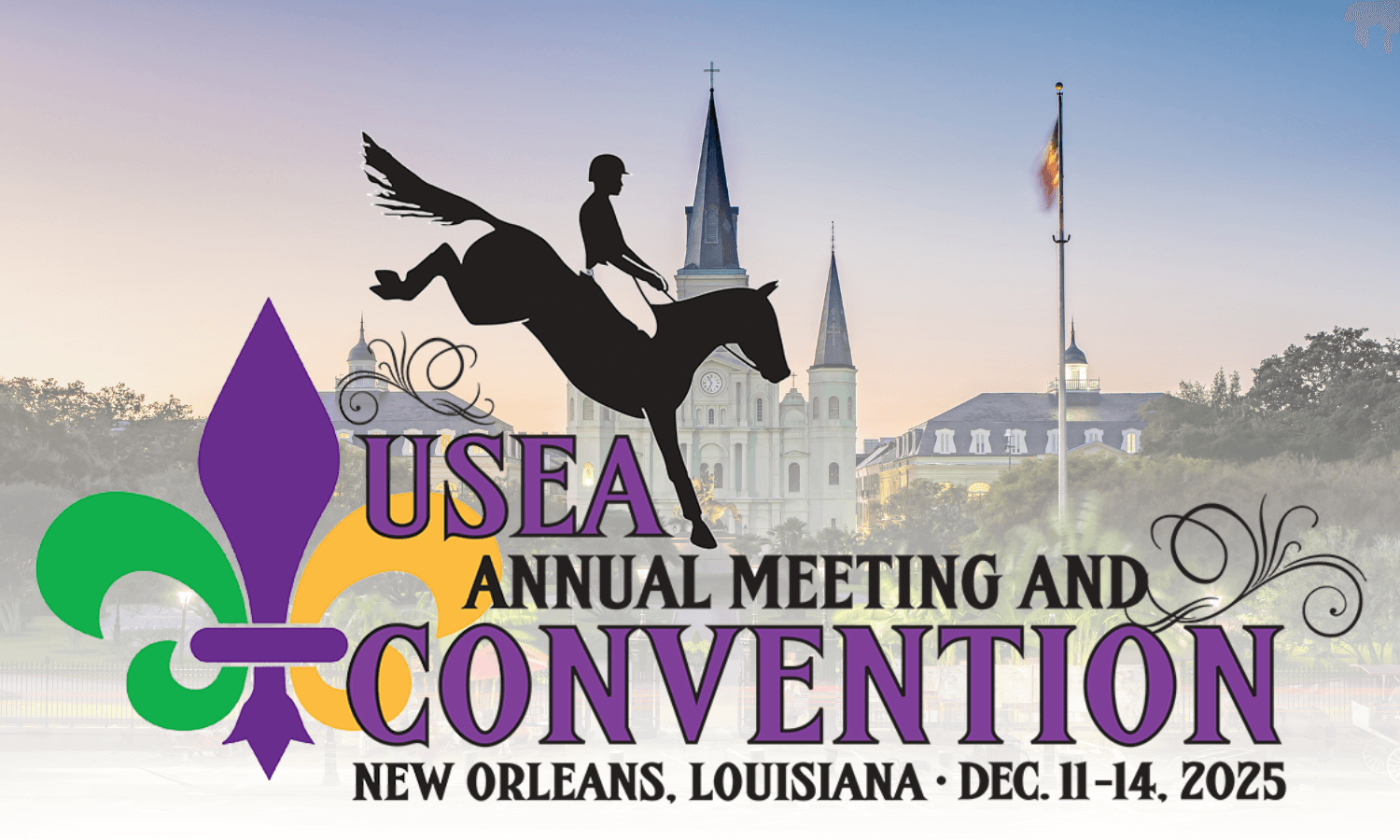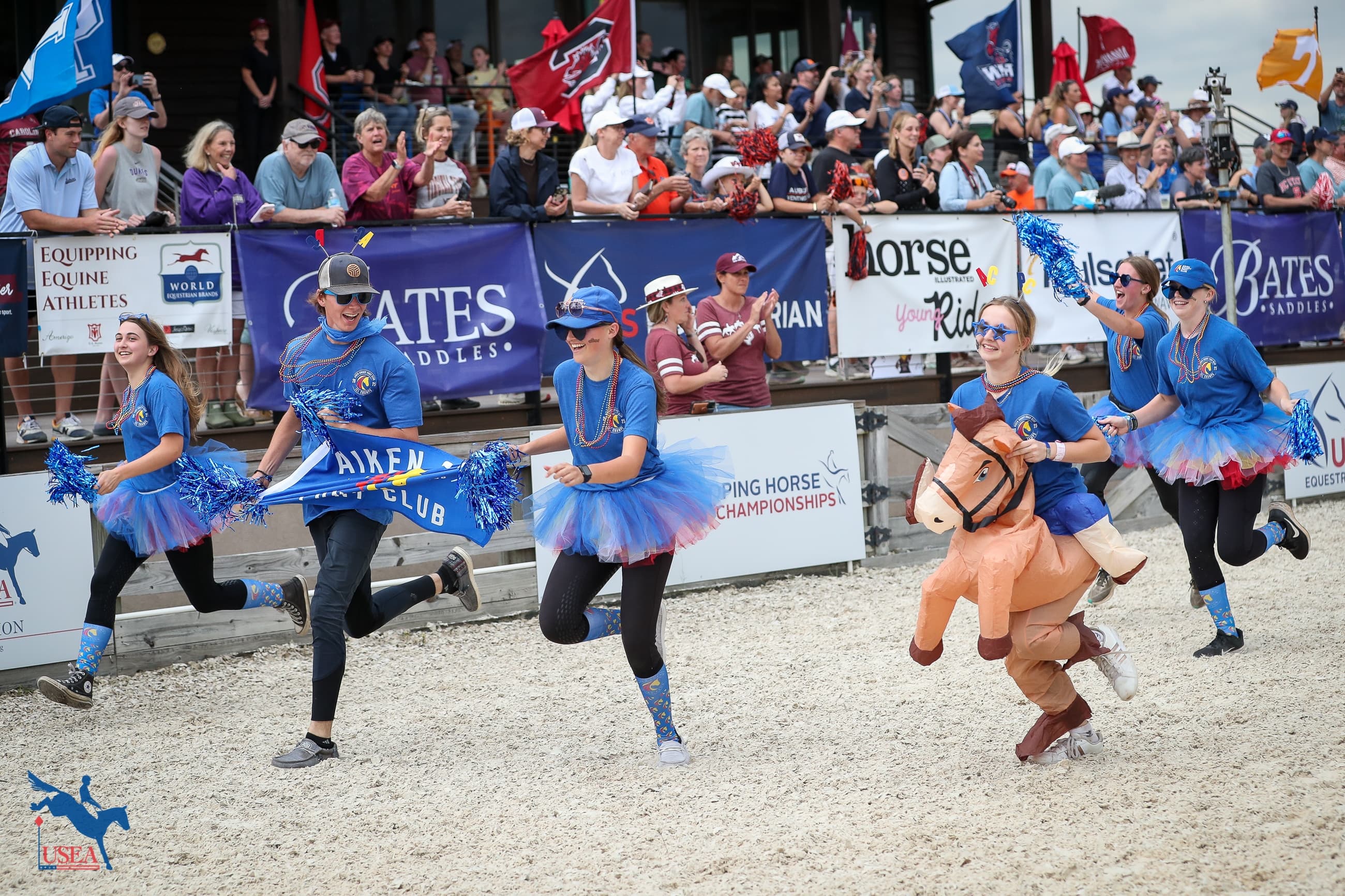What is the USEA Instructors' Certification Program?
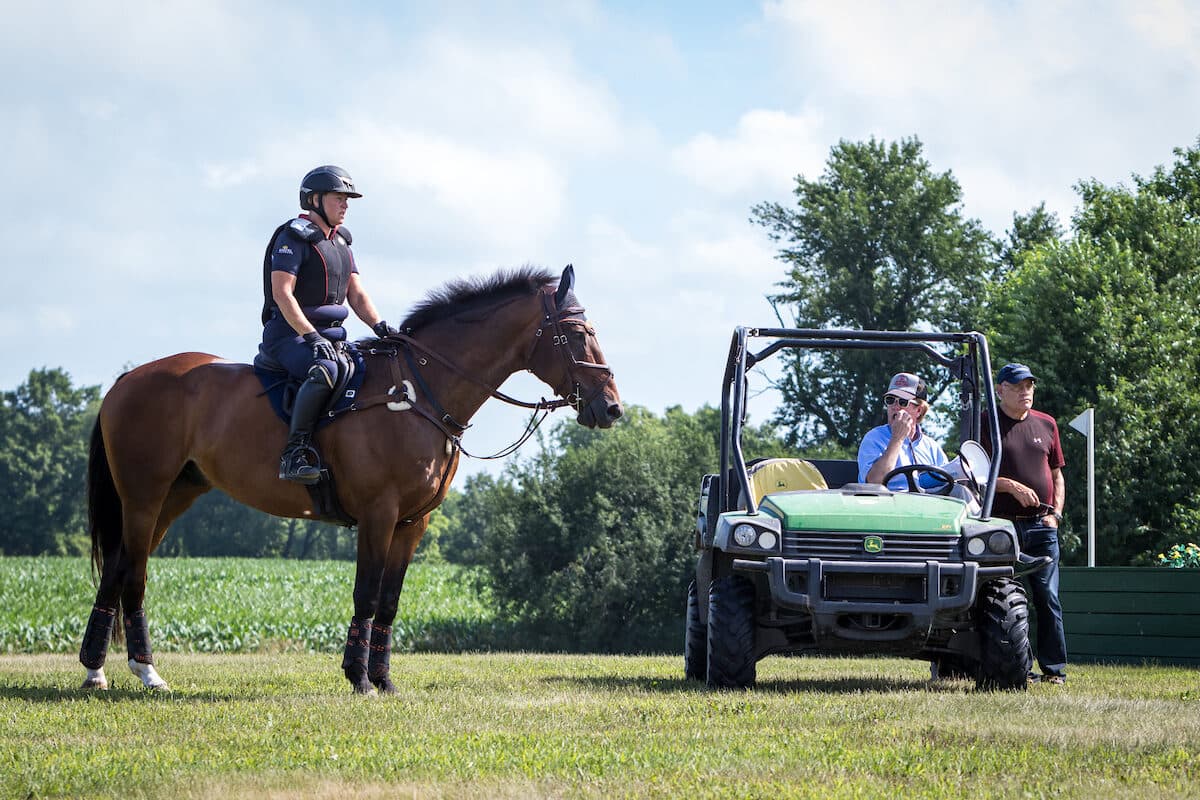
The USEA Instructors' Certification Program (ICP) was formed in 2002 to help instructors equip their students with the essential techniques needed in eventing to be safe and successful. Our prolific ICP faculty (made up of Captain Mark Phillips, David O’Connor, Karen O’Connor, Phyllis Dawson, Mary D’Arcy, Jerry Schurink, Jim Graham, Robyn Walker, Eric Horgan, and Dayna Lynd-Pugh) has cultivated these techniques in the instructors while keeping them on the forefront of the ever-changing sport of eventing. They teach and discuss each component of riding theory, practicum, and horse/stable management at length with the instructors through a variety of workshops, assessments, and continuing education throughout the individuals’ teaching careers.
Each candidate instructor attends a workshop (before being assessed). There, the faculty teach and lecture on the curriculum’s essentials and the candidates learn to apply their knowledge in their lessons through faculty-instructor model teaching. Faculty members work with each applicant ICP instructor one-on-one to hone their teaching style and application, thus creating a trusted base to which each student learns. Candidates at all levels must also take an online three-part test in horse and stable management as well as a hands-on portion. At a workshop, if a faculty member feels an ICP candidate would benefit from further education and practical application of knowledge in a portion of their teaching, they’ll establish a mentoring schedule; mentors include ICP faculty members and/or another ICP certified instructor.
After participating in a workshop, completing a library of required reading, and submitting student verification, each instructor can apply for assessment. At an assessment, our faculty watch in detail a lesson each in dressage, show jumping, and cross-country at the level at which the instructor wishes to be certified. The candidate develops these lesson plans suited to the student and horse’s level with take-home messages that are clear, safe, and encouraging.
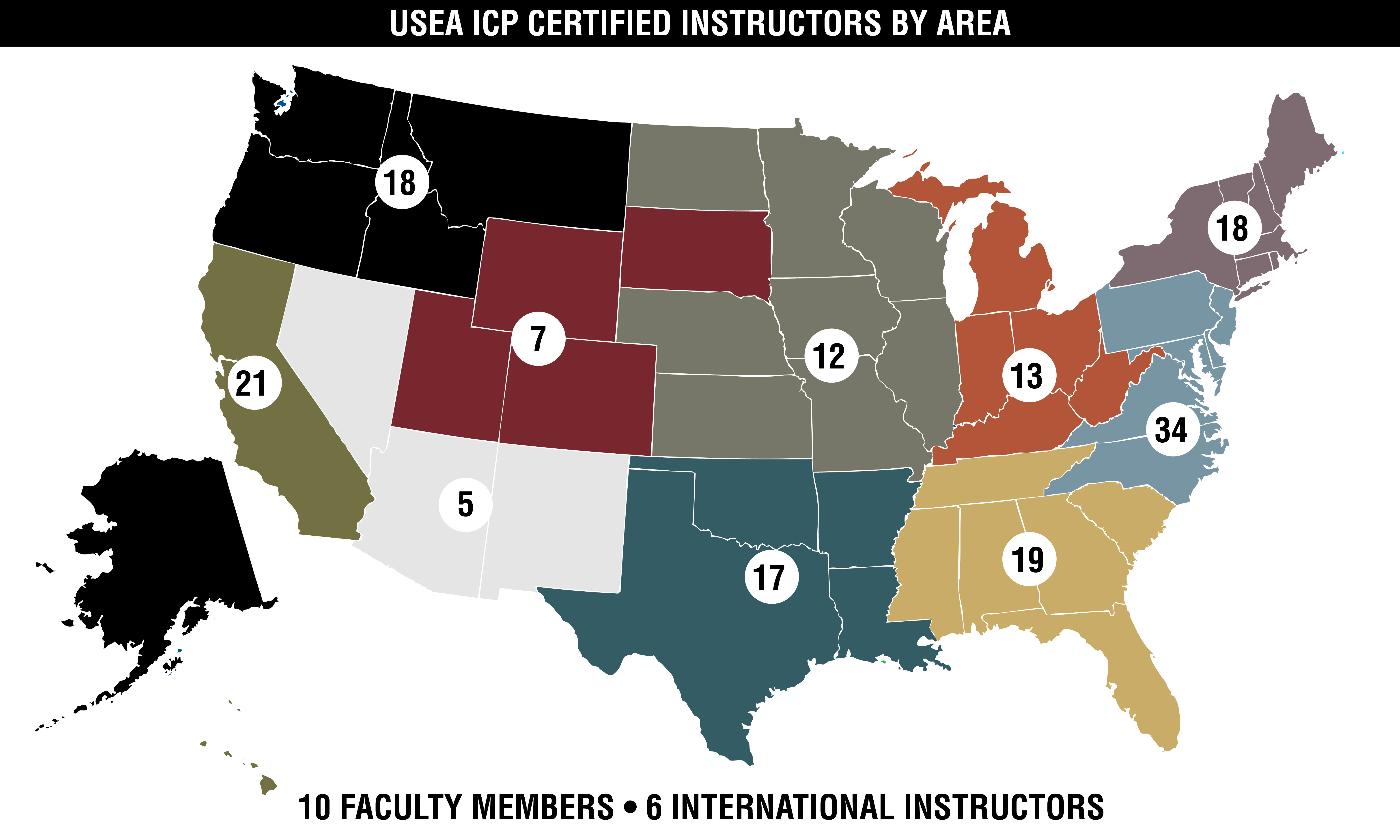
The ICP uses CPR and first-aid certification, Centers for Disease Control Concussion Protocol Training, and USEF Safe Sport Training to educate instructors and equip them for any situation they might encounter in our sport. Each instructor must pass a nationwide background check before certification and ICP instructors are held to a code of professional conduct and must carry current liability insurance.
Every four years ICP instructors complete continuing education, which is an essential component to ongoing growth as an instructor; the sport has changed drastically in the last 100 years and will continue to evolve. Teaching and having our riders learn how to be risk managers helps keep both horse and rider safe. Riders must learn to think on their feet to complete the different phases in eventing and negotiate the changing demands of the sport.
The newest addition to the ICP is the institution and development of the Young Event Horse Instructor and Young Event Horse Professional Horse Trainer certification. These instructors and trainers are schooled and assessed as a traditional ICP candidate, except the students come in the form of amateur or professional riders learning to ride, train, and/or compete young event horses. They learn how to methodically work with young horses and how to safely teach the levels of eventing. A Young Event Horse Professional Horse Trainer also learns how to negotiate the different challenges and theories to help train these young horses.
After an instructor decides to pursue certification with the ICP, they must choose an assessment. Ideally, they select the level at which their students are riding and competing. The levels offered include:
Level I / Novice: Instructors of riders through the Novice level riding/training/competing and horse care.
Level I / Training: Instructors of riders through the Training level riding/training/competing and horse care.
Level II: Instructors of riders through the Preliminary and CCI2*-S & -L levels of riding/training/competing and horse care.
Level III: Instructors of riders through the Intermediate and CCI3*-S & -L levels of riding/training/competing and horse care.
Level IV: Instructors of riders through the Advanced, CCI4*-S & -L levels of riding/training/competing and horse care.
Young Event Horse Instructor: Instructors of amateur and/or professional riders that are riding/training/competing young event horses, including horse care.
Young Event Horse Professional Horse Trainer: Professional trainers of the young event horse, including riding/training/competing and horse care.
The ICP encourages the assessed instructor to continue to grow and seek the next level of certification when their students advance to the next level above their certification. The program offers benefits to the ICP instructor, such as:
- Reduced premiums on liability insurance
- Promotion in the USEA website list of certified instructors
- Reduced rates for attending or riding in ICP educational activities such as the annual ICP Symposium
- Free listing of ICP-certified individuals equestrian activities/clinics with www.EventClinics.com
- 5% off at Bit of Britain
- 10% off at C4 Equestrian Belts
- Free one-month access to all materials at www.equestrianprofessional.com and a free business consultation via phone with Equestrian Professional’s Elisabeth McMillan.
The ICP offers its instructors a group discussion platform where they can discuss current issues and techniques. The USEA publishes articles in Eventing USA magazine geared towards learning and teaching throughout the year; the magazine also features our ICP instructors in the “ICP Spotlight,” where each instructor gets to talk about his or her program and operation.
So you want to become ICP-certified? We can help! Please contact Nancy Knight at [email protected] or Lauren Gash at [email protected] to get started.
About the USEA Instructors’ Certification Program
Instructors are essential to the training of riders and horses for safe and educated participation in the sport of eventing. The USEA Instructors’ Certification Program (ICP) was initiated in 2002 to educate all levels of eventing instructor with essential training principles upon which those instructors can continue to build throughout their teaching careers. ICP offers educational workshops and assessments by which both regular instructors, Level I through Level IV, Young Event Horse (YEH) instructors, and Young Event Horse professional horse trainers can become ICP certified. Additional information about ICP’s goals, benefits, workshops, and assessments as well as names and contact information for current ICP-certified instructors, YEH instructors, and YEH professional horse trainers are available is available on the USEA website. Click here to learn more about the Instructors’ Certification Program.
The USEA would like to thank EquiAppraisal for sponsoring the Instructors’ Certification Program.

